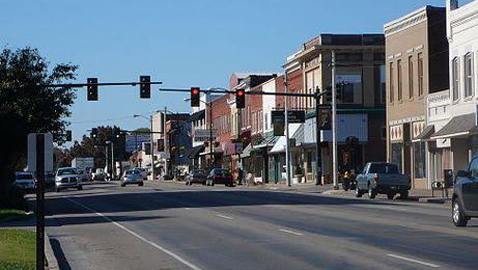By Mike Steely
steelym@knoxfocus.com
The birth of Knoxville and the push for statehood for Tennessee was a political struggle. While most residents in the “Southwest Territory” favored becoming a state, there were opponents in the U.S. Congress that wanted to delay the recognition.
February 6, 1796, was the day the proposed State Constitution was signed and sent to Congress for consideration of statehood. The Tennessee Constitution was publically read on Gay Street that day and will be read again on Gay on the same day this year.
February 5th of this year will see the official kick off for the press, at 2 p.m. near the Trolley in the East Tennessee Historical Museum when many of the upcoming events will be announced.
The original Tennessee Constitution gave the right to vote to “all free men who were at least 21 years of age” who had lived in the state for at least six months. To serve in the legislature the men had to own at least 200 acres of land. The constitution also guaranteed free speech, press, religion, peaceable assembly and trial by jury, and forbade unjustified search and seizure.
Passed by the new legislature the document was not accepted by Congress because it was not passed by the voters; organizers quickly held a vote and resent it to Congress.
President George Washington signed the statehood bill on June 1, 1796. By the end of that year the new state of Tennessee had elected Andrew Jackson as the state’s only Congressman and William Blount and William Cocke as its first U.S. Senators.
Two hundred and twenty-five years ago, formally, Tennessee became a state and Knoxville became the capital.
Knoxville is actually two years older than the state, incorporated in 1794 by the Southwest Territory legislature. The little settlement, which included James White’s Fort and the William Blount Mansion (which doubled as the territorial capital), was named for Blount’s superior, Secretary of War General Henry Knox.
Knoxville isn’t the oldest town in the state but is probably number five or six. But if you count the years starting with White’s Fort the city might lay claim to be one of the earliest and certainly the first capital not only of the new state but also of the prior Southwest Territory.
Jonesborough dates from 1779 and Dandridge claims to be the second oldest incorporated town, began about 1792. Maryville dates from 1795 as does Greeneville. Rutledge dates from 1797.
Other events will mark the anniversary such as Statehood Day on June 1, marking the day when Congress finally got around to granting recognition of the 16th state of Tennessee. The James White Fort will host the June 1st Celebration and there will also be a free tour of several historic homes.
On October 3, 2016, Knoxville will celebrate “Founder’s Day.”
Several regular annual events and festivals throughout the year will include the city’s 225th Anniversary celebrations including the new “Knoxville Stomp” music festival, recognizing the early country music history in Knoxville.







